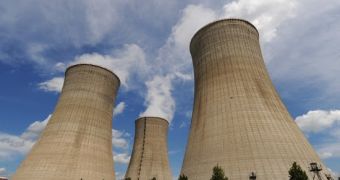This past Wednesday, US Energy Secretary Ernest Moniz went public with the news that the country was to soon get two new nuclear reactors.
The reactors in question are to be built in Georgia, and will be added to the Alvin W. Vogtle Electric Generating Plant, information shared with the public says.
According to a press release on the matter at hand, plans for the construction of these two new nuclear reactors have been granted not just approval, but also a $6.5 billion (€4.72 billion) loan guarantee.
As detailed on the official website for the country's Department of Energy, the deal for the allocation of said loan guarantee is to be finalized this Thursday, in Waynesboro, Georgia.
Interestingly enough, the two brand-new nuclear reactors that are to be built in Georgia are the first of their kind built in the United States in nearly 3 decades.
Energy Secretary Ernest Moniz says that, although some might not like nuclear power all that much, the fact remains that this energy source trumps fossil fuels when it comes to reducing carbon emissions and thus keeping climate change and global warming in check.
Commenting on how this initiative will affect the country's energy sector and overall ecological footprint, he stated as follows:
“The construction of new nuclear power facilities like this one is not only a major milestone in the Administration’s commitment to jumpstart the U.S. nuclear power industry, it is also an important part of our all-of-the-above approach to American energy as we move toward a low-carbon energy future.”
“The innovative technology used in this project represents a new generation of nuclear power with advanced safety features and demonstrates renewed leadership from the U.S. nuclear energy industry,” he went on to explain.
The two new nuclear reactors will have an energy generating capacity of 1,100 megawatts, and specialists estimate that the electricity they will produce will suffice to meet the demand of about 1.5 million households.
During their construction phase, the reactors will lead to the creation of 3,500 on-site jobs. Once up and running, they will provide some 800 permanent job opportunities.

 14 DAY TRIAL //
14 DAY TRIAL //